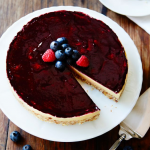With our busy lives, it can feel as though there isn’t space for us to create any time for solitude. Having a young family in particular can make it feel as though none of our time is our own and, when coupled with work commitments, it can quickly begin to feel overwhelming and as though there is no space for anything else. And we don’t have to have young children to feel the pressure to fit more and more into our days. Yet, research clearly demonstrates the benefits of solitude for strengthening our relationships, improving our creativity not to mention that—for those who identify as introverts—it can be key for happiness.
A common phrase I hear from people is “I don’t have time”. I’m too busy to prepare my own meals, too busy to have a proper lunch break, too busy to take any time to myself—the list of things we, as a culture, don’t have time for is nearly endless.
Yet, with the advents of technology and the flourishing of social media, many of us squander opportunities for quality solitude by connecting in the digital world and foregoing the opportunity to take time out. MIT researcher and founder of the Initiative on Technology and Self Sherry Turkle calls it “social snacking” and like ‘junk food’, it can be harmful to our health.
While it might feel as though flicking through social media feeds is relaxing, research suggests that the personal use of smartphones to scroll through social networking ‘news’ is linked to anxiety and increased stress levels. In fact, the more regularly people use their smartphones to access the web for personal reasons, the greater the anxiety. Additionally, in a world that already inundates our minds with information, we further overstimulate ourselves when we engage in this kind of ‘downtime’ practice.
It wasn’t all that long ago that we were unreachable from the time we left the house in the morning to the moment we arrived at our next destination. We had no emails to check at traffic lights or while waiting for public transport, and no phone or social media catch-ups to make between our destinations. While these modern advancements certainly make for convenience, even those moments that were naturally a suspension of time where we could perhaps just take in the world around us or read a paperback have been swallowed by our smartphones.
Perhaps we’ve simply forgotten how to enjoy solitude. We’ve become so conditioned to be on the go from sun up to sun down (or beyond), that when the moments present themselves we don’t know what to do with ourselves. In fact, I often hear from clients that they feel guilty about ‘doing nothing’ or not using their time productively. Then, of course, there are times when we feel as though being alone will cultivate feelings of loneliness. We are social creatures by nature and we need to feel a sense of belonging and community so there will naturally be moments where we feel energised by social interactions. The problem lies in our constant busyness and when we begin to feel as though people are putting pressures on our time that we’d rather be spending elsewhere.
Our bodies need time and space to cope with the pace of modern living. Never before in human history have we lived at such a relentless pace and it’s having a significant impact on our biochemistry. We need downtime, outside of sleep, to allow our bodies and minds time to recalibrate and rest. And solitude can help us foster that. For many, the only time they can truly feel as though they don’t have to ‘be’ or ‘do’ anything for anyone else is when they are alone. Solitude creates space for us to reflect on our priorities and needs, rather than those of others. It’s an opportunity for us to replenish both our body and our mind at the same time.
So schedule some alone time weekly, or daily. It might be that you take a full hour for your lunchbreak each day where you leave your mobile at your desk so you don’t have the temptation of social media or emails. You might ask your partner to look after the kids for half an hour while you go for a walk around the block. You might like to build it up to an entire day. Get into nature, open that book you’ve been meaning to read for months or draw yourself a bath. Whatever feels like it will revitalise you the most.









